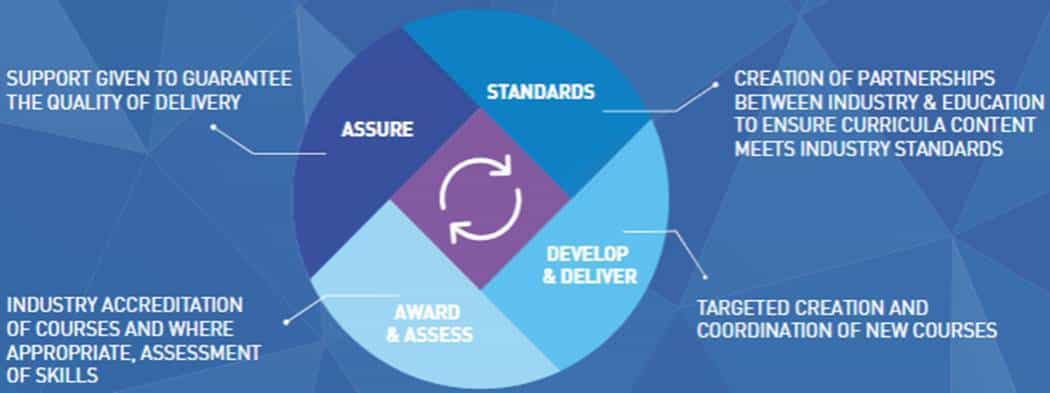
Since launching the Digital Skills Strategy some 15 months ago, Digital Jersey has reenergised its efforts to work with government and industry to promote the message that digital skills matter, that there is a need to upskill and reskill the workforce, and that the students of today – before they’re the workforce of tomorrow – need to learn these essential skills throughout their education.
But what does ‘digital skills’ actually mean?
Ask 100 people and you’ll, likely, get 100 different answers.
Which is why the Digital Skills Partnership has been working to sort the wheat from the chaff and give clarity to what digital skills actually are, to monitor their delivery, and to ensure what sounds right in a meeting or on a page translates correctly in the classroom.
It’s approaching a year since we began this complex and ever evolving challenge, so it seems timely to share with you the progress we’re making and the opportunities that exist for Jersey, in the digital community, but – frankly – right across the island, whatever the sector.

So what is the Digital Skills Partnership?
We’re a body that brings together both industry and education to identify the very specific skills that are today, tomorrow and long into the future to help our island’s economy flourish.
We’ve ensured a breadth of industry is represented, alongside all tiers of education, so we can identify the real issues faced by teachers delivering digital skills, employers recruiting staff, and students changing expectations of education.
As part of this, we’ve boiled down digital skills into four, be it overarching areas: business intelligence (such as Business Analysts and Project Managers), Digital Content/Creative (including UX Designers and Digital Marketeers/strategists), Development (like Software Engineers and Enterprise Architects) and Infrastructure & DevOps (which means IT Support, Systems Administrators and the like).
In other words, if your perception of ‘digital skills’ is sitting in a coding class, that is to miss the breadth and depth of the skills needed.
What are the jobs of the future?
We’re asking the big questions, such as ‘what are the jobs of the future?’ It’s by digging deep into this that we can look at jobs that exist today which won’t exist tomorrow. That may be because of automation or artificial intelligence, it could be because there simply won’t be the need for such a task in months or years from now.
The partnership is benchmarking Jersey against similar such set-ups elsewhere in the world. It’s by doing this that we’re able to consider our own efforts in the context of initiatives elsewhere, and indeed to apply this evidence-based approach to our own work.
We’re also bringing industry and education together more closely than before, including offering teachers the opportunity to spend time in digital workplaces so the theory of those digital skills can be seen at the coalface. That, in turn, helps them deliver with greater authenticity when back in the classroom.
Digital Jersey Academy
And, later this year, the Digital Jersey Academy will provide a focal point for all this work, and a centre of excellence for the sharing of best practise. And, given that well over 100 people have registered their interest for the Digital Leadership Programme, the early signs are there is a real appetite across the community to achieve a collective success.
It really is only obvious once it’s obvious. And that’s why the Digital Skills Partnership will continue to meet, guide and shape the islands digital skills strategy.
It’s obvious, really!



